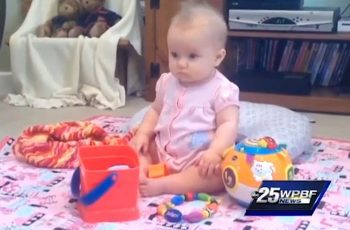Most parents love reading bedtime stories to their kids: it’s a time to bond, share classic tales, and unwind. But did you know that in doing so, not only are you creating a special closeness to your kids, you are also making their brain function accelerate?
That’s according to recent findings in the Journal of Pediatrics, which did a study and found that children’s brain scans “light up” more when parents read to them, particularly among toddlers and preschoolers.
Dr. John Hutton, a physician at Cincinnati Children’s Hospital Medical Center, led a study that used MRIs to measure brain activity in 19 kids, ranging in age from three to five years old. The scans followed their brains’ movement while listening to parents reading and to random non-verbal sounds as well. The findings were definitive, according the doctor.
“… Reading builds brains,” Dr. Hutton concluded from the study.
The doctor and his team also conducted interviews among the parents to determine overall mental stimulation for the study children when at home. They discovered that the averages for reading bedtime stories went from each night down to twice weekly.
Using that information, the study team were able to correlate that those kids who got the most at-home reading time also demonstrated the best brain activity when placed in a research setting and hearing stories there.
Hutton wasn’t terribly surprised by these findings, noting that reading also helps kids develop their imaginations. This happens, according to the doctor, in a part of the brain that is active in semantic processing, which is understanding language, as we laymen would say.
” … Children … have to put it all together in their mind’s eye,” said Hutton, noting that even book illustrations help with this area of cognitive development. He specifically recognized that printed pictures viewed during story time have a different effect on kids’ brains than, say, a computer screen or TV show would.
A neuropsychology doctor, who was not part of the study, concurs with Hutton’s findings. Dr. Brandon Korman of Miami’s Nicklaus Children’s Hospital says that in listening – as opposed to watching and staring and possibly tuning out entirely – the young brain interacts in a more dynamic state.
You won’t find many, if any, healthcare professionals who would disagree with this information, either. The American Academy of Pediatrics (AAP) stands behind the importance of parents reading to their progeny, even from as young as just a few days old.
Both Hutton and the AAP agree that this is probably the single most important time for brain development, and add that if toddlers do not have access to this kind of early start towards literacy in life, they may never catch up once they start school in earnest.
The next logical question, given how integral iPads and Kindles have become in our everyday lives, is whether digital apps are inferior sources for reading to children when compared to the traditional printed word.
The answer to that one is: the jury’s still out. But some experts, including both Drs. Hutton and Korman, feel that computer devices are less compelling for human learning than more old-school methods. He noted that the ability for kids to ask their parents questions while being read to, whether on moral issues, problem-solving, or similar life skills, are just as important as the brain activity they encourage.
“[These lessons are equally important] to their social and emotional development,” Hutton noted.
If you know someone who might like this, please click “Share!”

